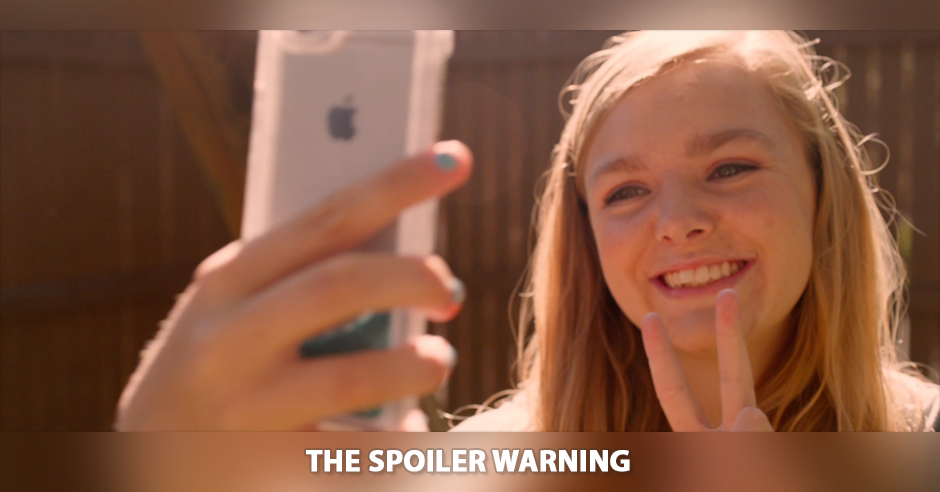Thirteen is a year of disproportion. Too old to be oblivious but too young to be savvy, nothing quite fits the way it looked in the store; it’s that age when you know what confident sounds like /just enough/ to be aware that your cheap impression isn’t fooling anyone. I remember it all too well: the endless self-doubt, the terror of speaking out of turn, the idolization of “older kids” and the certainty that I’d never be counted among their ranks. Everything felt so fragile, so on the verge of toppling — a misplaced nod, a laugh too hearty, or a splashy cannonball when all the cool kids were doing pencil dives might bring the whole facade of “normal” crumbling down. Every conversation was a competitive sport; parties were marathons, wars of attrition. And I remember this distinct, bizarre impression: that if I let my guard down just once, I risked missing out on The Big Thing. If I logged off AIM to spend an hour with the family, if I said “no” to the most banal mall invitation, the world might pick up and relocate without me. My two simultaneous crushes might find new shoulders to cry on, or a (Lord, may it never be!) inside joke might develop of which I’d be forever outside. All that energy just to tread water.
I didn’t realize how much I remembered, till Eighth Grade (5/5) came and dug it up. A sort of archeological excavation into memories of preteen anxiety, Bo Burnham’s debut is so uncannily accurate it borders on documentary. It’s also, easily, my favorite film of the year (so far). Documenting a few weeks in the life of a lonely eighth grade girl, Burnham’s is a humanistic portrait of life at a crossroads. Like Ladybird without the audibly-penned cleverness, or Edge of Seventeen without an edgy bone in its body, or Boyhood without a whiff of Linklater’s self-indulgence. It’s so effortlessly truthful, so keenly observed, so heartfelt and vulnerable and perfectly concise, it almost makes me angry — what right does a standup comic and former Vine star have to make a film this good on his very first try? It feels inherently unfair. Like accidentally stumbling into a goldmine.
But gold is gold, all “fairness” aside, and Eighth Grade has it by the wheelbarrow. Kayla (played by a truly wonderful Elsie Fisher) is the rare protagonist that is both authentically specific and universally relatable. Specifically, she’s a bighearted kid preparing for high school, who doesn’t have quite as many friends as she’d like. What she does have is a supportive single dad who constantly embarrasses her, a self-help Youtube channel nobody watches (try a podcast, Kayla, it hurts less), and a good-humored personality that nods along before it even gets the joke — that brand of infectious okay-ness which might not play in high school but will absolutely kill in college. She’s exactly the sort of person who would gift a card game at a rich girl’s pool party when everyone else is giving outfits. She is also, somehow, all of us. She’s a kind person, honest and optimistic to the core. She craves the acceptance she sees on social media, and is constantly straining to make her calculated “normalcy” look unforced. She can visualize the person she wants to be — sees her every time she practices a “hey everybody” in the mirror — but she somehow always falls a little bit short. She hasn’t yet learned that we all do, always, or that falling short can be the most beautiful thing. In the words of her dad, she has no idea how great she is.
I loved this movie, and I felt for Kayla with every bone in my body. I cried at her defeats, so tiny with perspective but so enormous in the thick of it. I cried at her victories, too, often harder than the defeats — I felt how badly she needed them, how much they mattered. I cried at the (mercifully frequent) moments of everyday joy, the gentle acts of connection that lit her up inside: singing karaoke, a smile from a boy, a phone call so exciting it sends her pacing nervous laps around the room like a tweaked out Roomba. This is a movie that wears its pathos on its sleeve, and it encourages me to do the same. I want to tell Kayla the same thing I’d tell the kid in 2002 with the bowl cut and braces and slight lisp who’s petrified of ordering a “slice of pizza” or even saying his own name for fear of losing what nobody actually had: relax. You’re going to be fine. You’ll grow into yourself and the world will make room.
I rarely use this word, but here it goes. For what it set out to do, Eighth Grade is about as close to perfect as a movie can get. I’ll be batting hard for it during awards season. Chris and I gush over the movie, and dish on our own awkward childhood experiences, in a special, spoiler-free, SF Film Festival edition of the podcast:
